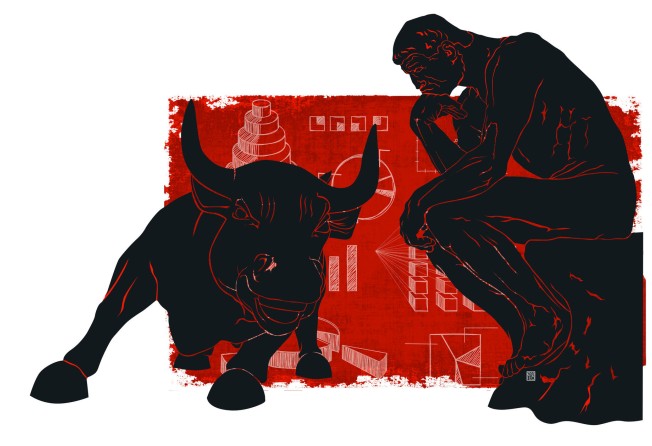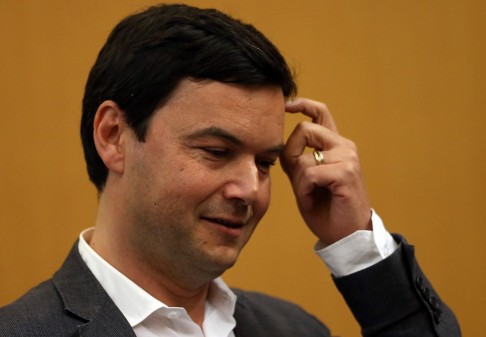Business people ignore thinkers at their peril
In the world of business, those who ignore intellectual ideas risk failing to understand the changes in the environment their companies operate in

You can almost see the lips curl and the sneers form on the face of Mr Tommy Businessman as he emits the words "French intellectual".
Tommy is a self-made millionaire who prides himself on never wasting time reading books, nor does he dabble in the quite useless world of theory because, as he will readily tell you, our Tommy is a man of action and has no truck with absurd people such as philosophers or other theorists.
I have figuratively met Tommy a number of times. Once, as a reporter, I was ushered into a tycoon's sumptuous office lined with bookcases and proudly told by their owner they had never been sullied by books; instead they held numerous pictures of himself with famous people, a clutch of trophies and certificates and several objets d'art derived from a taste-free zone.
We can therefore safely assume that Tommy and his many counterparts have never read the works of French intellectual Thomas Piketty, who has been drawing very large audiences in the United States as his book Capital in the 21st Century hogs the top of bestseller lists.
Piketty's 700-page blockbuster details how wealth has become more concentrated this century and how the gap between rich and poor has widened to an extent that it can only, in his view, be redressed by significantly increased taxation of the rich.
This is a crude summary of a complex book that is garnering a great deal of interest but, presumably, not among those who shun the works of intellectuals.
Piketty is a man of the left, and it is probably true to say that agenda-setting works of economic theory have predominantly come from this side of the spectrum. Another work from a previous century with capital in its title comes readily to mind and most certainly had even greater impact.
However, the left does not have this field to itself, as the works of Milton Friedman and Friedrich Hayek demonstrate.
Ed Miliband, leader of Britain's Labour Party, was an early enthusiast for Piketty and quickly adopted some of his ideas to beneficial effect. Margaret Thatcher, one of the dominant political figures of the last century, always had a copy of Hayek's works in her famous handbag.
Business leaders have tended to be less influenced by philosophers, but some are strongly motivated by religious ideas, while others have been influenced by populist intellectuals such as Ayn Rand and Charles Darwin.
But why should businessmen be paying attention to all this intellectual stuff? The answer comes from a number of thinkers, possibly beginning with Edmund Burke, who said: "Those who don't know history are doomed to repeat it." This was later and more famously restated by another philosopher, George Santayana, who said: "Those who cannot remember the past are condemned to repeat it."
In other words, for the purposes of this train of thought, those who seem to think that philosophy and theorists occupy a place with no practical relevance are doomed not to be forearmed with an understanding of ideas that change history.

How many of today's bankers are still busy ignoring the works of thinkers who helped ferment the storm of protest that has led to profound reforms in the way they do business?
And which businessmen paid attention to environmentalists like biologist Barry Commoner, who did so much to change views about the value of economic growth as an end in itself?
Of course, a great deal of what is discussed and written about in universities and other intellectual circles is pure waffle and deserves a lack of attention.
However, anyone who has been subjected to the waffle and tiresome presentations of those inside the business world will know that mere proximity to the practical sphere of commerce is hardly a guarantee of common sense, let alone wisdom.
The task, as ever, is to sort the wheat from the chaff. In most spheres of life, this is widely understood, but somehow when it comes to the realm of ideas, there is an astonishingly widespread view that "theoretical stuff" can be ignored.
With the rapid advance of communications, this is doubly absurd because new ideas catch fire much more quickly as they are disseminated by the click of a button.
The wily businessman understands this and keeps a close eye on the world of ideas, not least out of a sense of self-preservation. What looks like abstract theory has a habit of turning into fact.
One of the biggest mantras of business is that successful companies always keep one step ahead of their rivals. This certainly applies in the selection of products and services, but also understanding the environment that moves their markets.
Stephen Vines runs companies in the food sector and moonlights as a journalist and broadcaster